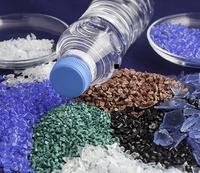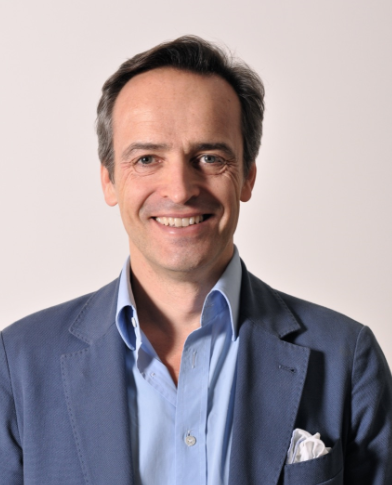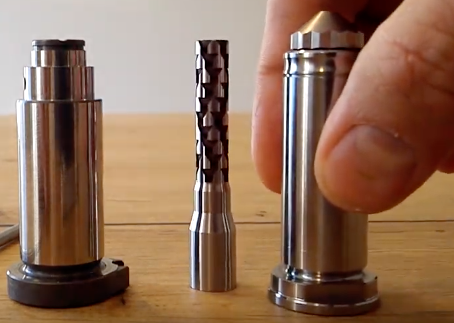 Incoming EU regulations posit that beverage bottles will have to contain at least 25 percent recycled plastic (rPET) by 2025 and 30 percent by 2030. As the demands intensify, the plastic polymer market increasingly requires innovative technologies to bolster its response to regulatory change. A technology that could aid companies striving to meet higher sustainability targets is in development from Luxembourg-based Keiryo Packaging. PackagingInsights spoke to Tangui Van der Elst, Member of the Board at the company, about this potential “big-ticket” item for the plastic production market.
Incoming EU regulations posit that beverage bottles will have to contain at least 25 percent recycled plastic (rPET) by 2025 and 30 percent by 2030. As the demands intensify, the plastic polymer market increasingly requires innovative technologies to bolster its response to regulatory change. A technology that could aid companies striving to meet higher sustainability targets is in development from Luxembourg-based Keiryo Packaging. PackagingInsights spoke to Tangui Van der Elst, Member of the Board at the company, about this potential “big-ticket” item for the plastic production market.
Keiryo’s technology has the potential to be a heavy-hitting technology due to its ability to alter a polymer’s performance, improve the cost-effectiveness and the recyclability of a material.
 “Our technology is based on well-grounded, long-established polymer rheology science. What we have developed is a mechanical process that influences the molecular ordering of the polymer melt during the injection phase. When you influence the way the molecules behave, you can trigger ‘flow-enhanced morphological changes’ inside the polymer melt,” says Van der Elst.
“Our technology is based on well-grounded, long-established polymer rheology science. What we have developed is a mechanical process that influences the molecular ordering of the polymer melt during the injection phase. When you influence the way the molecules behave, you can trigger ‘flow-enhanced morphological changes’ inside the polymer melt,” says Van der Elst.
Once this is done, the functionality of the material can be altered, meaning it is possible to generate a polymer with improved features such as barrier properties. Significantly, the company also discovered that its technology can also allow for better mixing of materials, such as virgin Polyethylene terephthalate (PET) and rPET, which is essential given the new targets to have more recycled content in PET bottles.
Moreover, when the material performance improves, there will be less need to mix different materials to obtain certain end performance levels. One type of resin can be used for a broader set of applications. “Consequently, you end up with a more homogenous waste stream that is of better quality. This was not a pressing issue four years ago, but now it is,” Van der Elst explains.
Indeed, access to a good quality recyclate is a barrier facing the industry, yet the incoming regulations will undoubtedly increase the demand.
The company also touts the technology as not being limited to one type of polymer. There is a growing emphasis on alternative materials such as bio-based polymers, but one of the reported hurdles for these materials is that they have a higher cost versus the equivalent oil-based material. However, Van der Elst notes that its technology could allow manufacturers to use less material, so the threshold to market for such bio-based materials could be lowered.
How does it work?
The Keiryo technology consists of a small metal insert added to existing injection molds. The internal design of the insert imposes mechanical energy onto the polymer melt during the injection phase, which triggers the molecular ordering. By doing this, the molecules are stretched and material with different or improved properties is created.
Van der Elst highlights that this small metal insert – a screw which is 3D printed – can be easily integrated into existing industrial machinery.
 “There is no need to build new production capacities or substantially alter existing ones. The KP technology is therefore globally scalable and it is simple to implement on existing industrial assets. The advantage of the technology is that it is not an expensive or cumbersome innovation to implement. We aim to deliver low-cost, highly scalable roll-out when we reach maturity,” Van der Elst notes.
“There is no need to build new production capacities or substantially alter existing ones. The KP technology is therefore globally scalable and it is simple to implement on existing industrial assets. The advantage of the technology is that it is not an expensive or cumbersome innovation to implement. We aim to deliver low-cost, highly scalable roll-out when we reach maturity,” Van der Elst notes.
Although the technology is not at a commercial rollout phase, it is fully patented. The main patent has been granted in over 20 countries, with further patents pending. “This extensive patent basis is important for future and existing partnerships,” says Van der Elst. The company also has partnerships already set in place with some “major” FMCG companies, although they cannot disclose who at this time.
However, one technical hurdle that faces Keiryo Packaging is time.
“What is time-consuming is that you need to collect a lot of data to make everything work. So, the lead time can be fairly long. Being a small, independent company, we also outsource a large part of our development process and this has an impact on the lead time. Therefore, we are currently focussing our efforts on shortening testing lead times,” Van der Elst concludes.
source: packaginginsights.com
Go Back to News